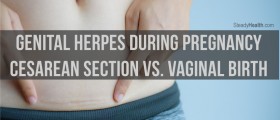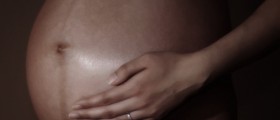
If you've read any of the many discussions about c-sections vs vaginal deliveries going on all over the internet on forums, blogs, and more reputable news sites and medical journals as well you have probably read about the concept that cesarean section mothers are less likely to experience stress incontinence after giving birth, and have better odds of having a baby without the damaged pelvic floor muscles that cause incontinence. But, is this true? Actually, weakened pelvic floor muscles and urinary incontinence are often the result of pregnancy itself, and can occur regardless of how a women gives birth.
Some studies even concluded there was no difference in incontinence rates at all between c-section women and those who delivered vaginally. One study from 2005 studied 539 women who were all first-time mothers and at full-term pregnancy when they gave birth. These women did not have a history of incontinence and were all pregnant with singletons. Some of them gave birth vaginally, others by planned cesarean section, and the third category had emergency c-sections. What were the conclusions of the study team, comprised of Hung-Yen Chin, Min-Chi Chen, Yu-Hung Liu, and Kuo-Hwa Wang? Well, 13 women who gave birth vaginally and 18 in the c-section group suffered from incontinence. Interestingly enough, the overall conclusion was that women from the planned c-section group had the lowest possibility of incontinence, with the emergency cesarean group having the most risk!
Women who were older and those with a higher Body Mass Index also had a larger chance of experiencing incontinence after birth. Is vaginal delivery itself a risk for incontinence? Maybe, but there are plenty of other factors that contribute as well, and most women who have vaginal births come out of it without ever being incontinent. You may also like to read about another study in: Can losing weight after birth save you from incontinence?














Your thoughts on this
Loading...